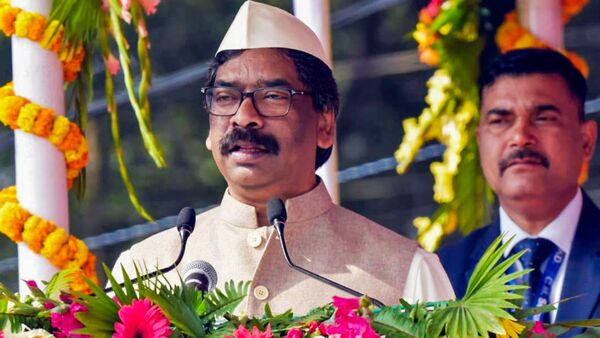In a shocking turn of events, Hemant Soren, the Chief Minister of Jharkhand, kohas been arrested by India’s Enforcement Directorate (ED) in connection with a corruption case. The opposition leader, belonging to the Jharkhand Mukti Morcha (JMM) party, vehemently denies the allegations, labeling them as politically motivated.
The accusations revolve around a piece of land in Ranchi city, the capital of Jharkhand, which the ED claims Soren acquired through the illegal sale of land owned by the Indian army. Soren contests the charge, asserting that the property was wrongfully attributed to him.
The arrest follows seven hours of questioning, during which Soren challenged the ED’s actions, declaring them politically motivated. The Supreme Court is set to hear the matter on Friday, indicating the high stakes involved.
Adding intrigue to the situation, Soren resigned from his position just hours before his arrest. The JMM quickly nominated transport minister Champai Soren as the successor to the chief minister role. The abrupt change in leadership underscores the tumultuous nature of the unfolding events in Jharkhand.
The JMM, accusing the federal government led by Prime Minister Narendra Modi’s Bharatiya Janata Party (BJP) of orchestrating a politically motivated “witch-hunt,” highlights a broader trend. Opposition leaders across India are facing high-profile investigations, raising concerns about the alleged use of central agencies to target political rivals ahead of general elections.
India’s main opposition Congress party condemned Soren’s arrest, framing it as a “blow to federalism.” The JMM is part of the Congress-led coalition of opposition parties known as INDIA, gearing up to challenge the ruling BJP-led National Democratic Alliance in upcoming elections.
Congress leader Rahul Gandhi, taking to social media, accused the BJP of attempting to “destroy democracy” through a campaign steeped in corruption. The political landscape is further mired in controversies, with other chief ministers and opposition leaders facing similar corruption allegations.
As the nation watches this unfolding drama, the arrest of Hemant Soren sends ripples through India’s political corridors, raising questions about the impartiality of law enforcement agencies and the broader implications for the democratic process. With the Supreme Court set to weigh in on the matter, the repercussions of this arrest will undoubtedly resonate in the lead-up to the impending elections, shaping the narrative of political discourse in the country.
